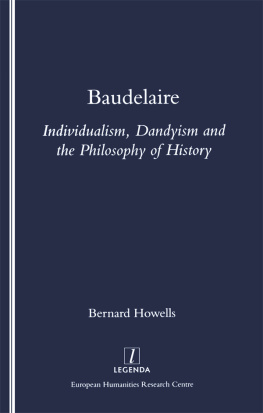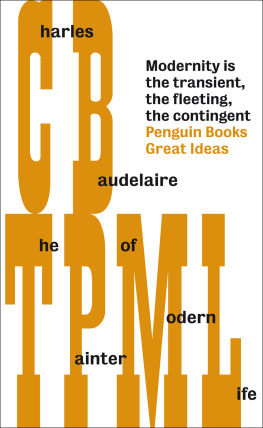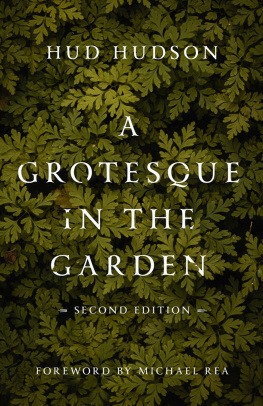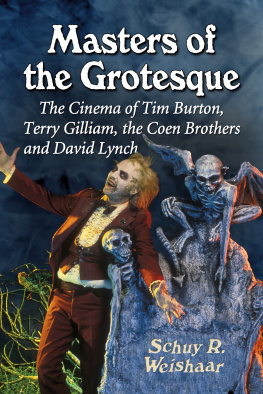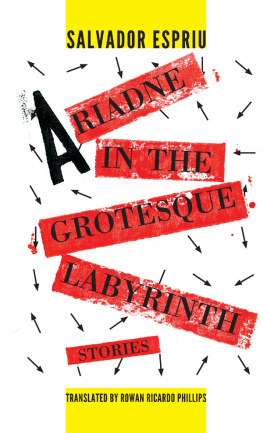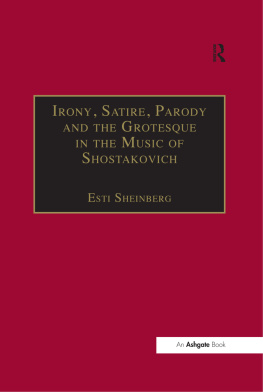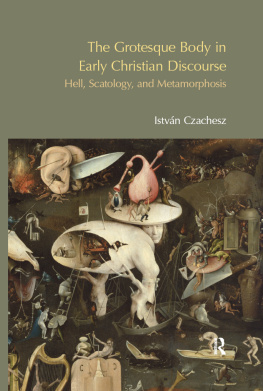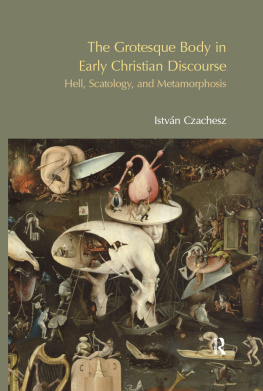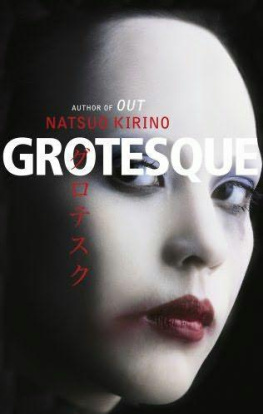Contents
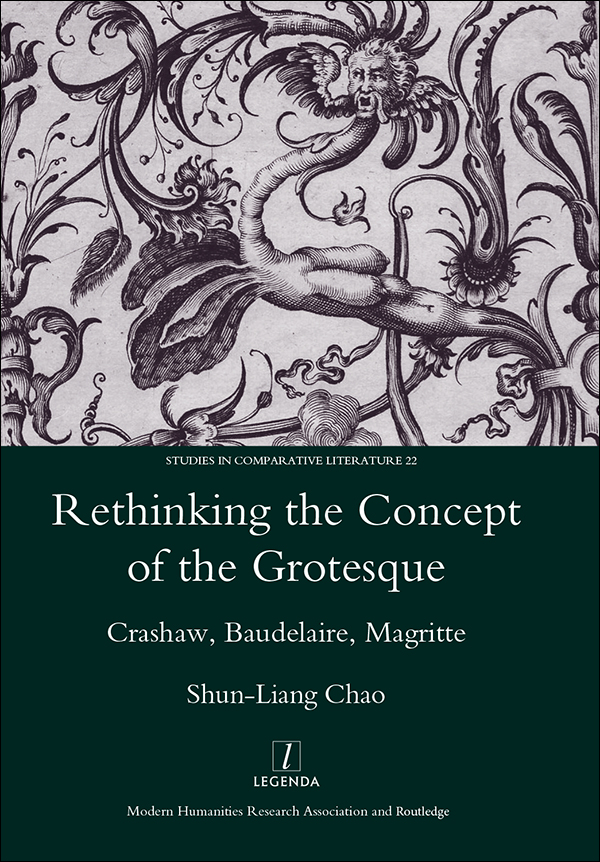
Rethinking the Concept of the Grotesque
Crashaw, Baudelaire, Magritte
LEGENDA
LEGENDA, founded in 1995 by the European Humanities Research Centre of the University of Oxford, is now a joint imprint of the Modern Humanities Research Association and Routledge. Titles range from medieval texts to contemporary cinema and form a widely comparative view of the modern humanities, including works on Arabic, Catalan, English, French, German, Greek, Italian, Portuguese, Russian, Spanish, and Yiddish literature. An Editorial Board of distinguished academic specialists works in collaboration with leading scholarly bodies such as the Society for French Studies and the British Comparative Literature Association.

The Modern Humanities Research Association (mhra) encourages and promotes advanced study and research in the field of the modern humanities, especially modern European languages and literature, including English, and also cinema. It also aims to break down the barriers between scholars working in different disciplines and to maintain the unity of humanistic scholarship in the face of increasing specialization. The Association fulfils this purpose primarily through the publication of journals, bibliographies, monographs and other aids to research.

Routledge is a global publisher of academic books, journals and online resources in the humanities and social sciences. Founded in 1836, it has published many of the greatest thinkers and scholars of the last hundred years, including adorno, einstein, Russell, Popper, Wittgenstein, Jung, Bohm, Hayek, Mcluhan, Marcuse and Sartre. Today Routledge is one of the worlds leading academic publishers in the Humanities and Social Sciences. It publishes thousands of books and journals each year, serving scholars, instructors, and professional communities worldwide.
www.routledge.com
STUDIES IN COMPARATIVE LITERATURE
Editorial Committee
Professor Stephen Bann, University of Bristol (Chairman)
Professor Duncan Large, University of Swansea
Dr Elinor Shaffer, School of Advanced Study, London
Managing Editor: Dr Graham Nelson
Studies in Comparative Literature are produced in close collaboration with the British Com parative Literature Association, and range widely across comparative and theoretical topics in literary and translation studies, accommodating research at the interface between different artistic media and between the humanities and the sciences.
PUBLISHED IN THIS SERIES
Breeches and Metaphysics: Thackerays German Discourse, by S. S. Prawer
Hlderlin and the Dynamics of Translation, by Charlie Louth
Aeneas Takes the Metro: The Presence of Virgil in Twentieth-Century French Literature, by Fiona Cox
Metaphor and Materiality: German Literature and the World-View of Science 17801955, by Peter D. Smith
Marguerite Yourcenar: Reading the Visual, by Nigel Saint
Treny: The Laments of Kochanowski, translated by Adam Czerniawski and with an introduction by Donald Davie
Neither a Borrower: Forging Traditions in French, Chinese and Arabic Poetry, by Richard Serrano
The Anatomy of Laughter, edited by Toby Garfitt, Edith McMorran and Jane Taylor
Dilettantism and its Values: From Weimar Classicism to the fin de sicle, by Richard Hibbitt
The Fantastic in France and Russia in the Nineteenth Century: In Pursuit of Hesitation, by Claire Whitehead
Singing Poets: Literature and Popular Music in France and Greece, by Dimitris Papanikolaou
Wanderers Across Language: Exile in Irish and Polish Literature of the Twentieth Century, by Kinga Olszewska
Moving Scenes: The Aesthetics of German Travel Writing on England 17831830, by Alison E. Martin
Henry James and the Second Empire, by Angus Wrenn
Platonic Coleridge, by James Vigus
Imagining Jewish Art, by Aaron Rosen
Alienation and Theatricality: Diderot after Brecht, by Phoebe von Held
Turning into Sterne: Viktor Shklovskii and Literary Reception, by Emily Finer
Yeats and Pessoa: Parallel Poetic Styles, by Patricia McNeill
Aestheticism and the Philosophy of Death: Walter Pater and Post-Hegelianism, by Giles Whiteley
Blake, Lavater, and Physiognomy, by Sibylle Erle
Rethinking the Concept of the Grotesque: Crashaw, Baudelaire, Magritte, by Shun-Liang Chao
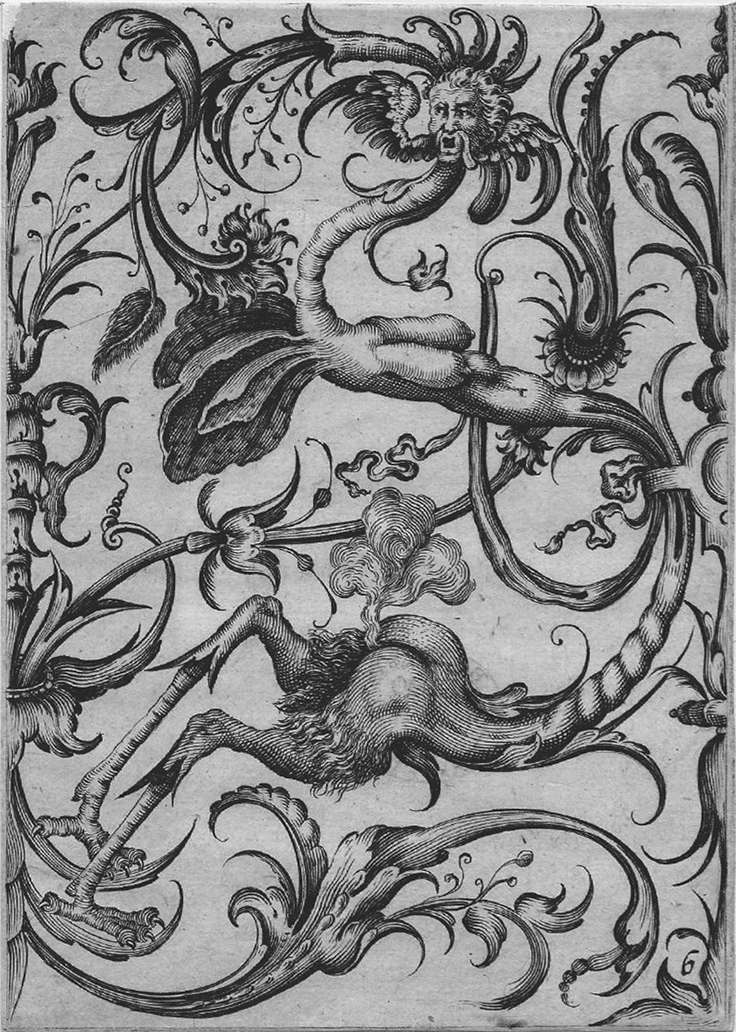
Seer aerdige grotissen dienstich, 1644. Trustees of the British Museum
Rethinking the Concept of the Grotesque
Crashaw, Baudelaire, Magritte
Shun-Liang Chao

First published 2010
Published by the
Modern Humanities Research Association and Routledge
2 Park Square, Milton Park, Abingdon, Oxon OX14 4RN
711 Third Avenue, New York, NY 10017, USA
LEGENDA is an imprint of the
Modern Humanities Research Association and Routledge
Routledge is an imprint of the Taylor & Francis Group, an informa business
Modern Humanities Research Association and 2010
ISBN 978-1-906540-82-1 (hbk)
All rights reserved. No part of this publication may be reproduced, stored in a retrieval system, or transmitted in any form or by any means, electronic, mechanical, including photocopying, recordings, fax or otherwise, without the prior written permission of the copyright owner and the publisher.
Product or corporate names may be trademarks or registered trademarks, and are used only for identification and explanation without intent to infringe.
CONTENTS
TO MY PARENTS AND THE MEMORY OF TZE-MING (TRISTE) HU

This book would not have been possible without the financial support of University College London, the Overseas Research Student (ORS) Awards Scheme, and the Chiang Ching-kuo Foundation. I would like warmly to thank Timothy Mathews, who guided this project through to completion with the utmost enthusiasm, and Tim Langley for his careful and thoughtful comments on the first draft of this book. I would also like to thank Marshall Grossman at the University of Maryland, with whom I undertook an independent study of Donne, Herbert, and Crashaw, and thus first encountered the idea of the grotesque. I am especially grateful to Elinor Shaffer (FBA), who provided invaluable advice on the revision of this book. I must also express my gratitude to Graham Nelson at Legenda for his generous help, and to Nigel Hope for his skilled copy-editing. My special thanks go to Lyn M. Lawrence for his patience in teaching me to be a good writer, and to teachers and friends who have offered encouragement and sincere friendship throughout the completion of this book.



